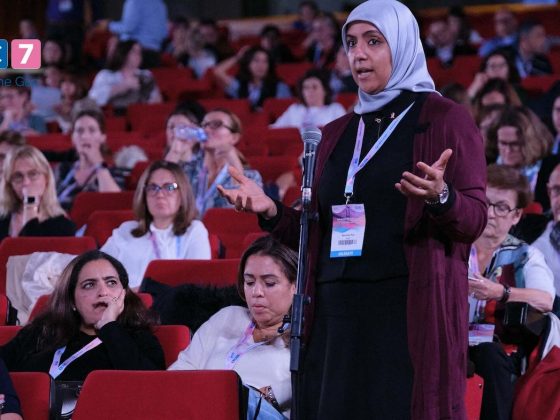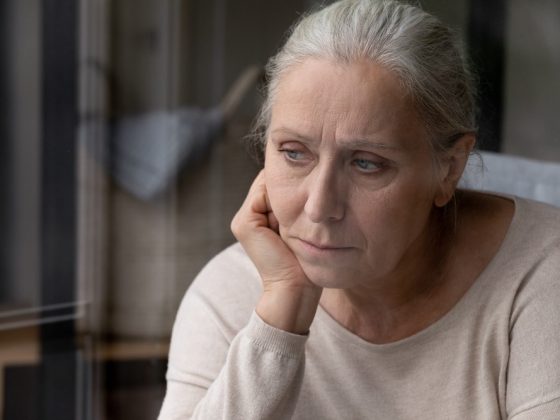Lowering the dose and adjusting the schedule may help older adults with advanced cancer better tolerate chemotherapy. The cohort study, published in JAMA Network Open, February 15, found older patients with advanced cancer who underwent primary treatment modification had a 15% reduced risk of serious clinician-rated toxic effects and a 20% reduced risk of patient-reported functional decline, with no compromise in treatment efficacy.
“Since older adults with cancer are vastly under-represented in therapeutic clinical trials, we hope that this study, along with other emerging research, will assist oncologists in selecting the optimal drug regimen, determining a safe and effective initial dosage, and implementing appropriate monitoring strategies to manage the clinical care of older people with advanced cancer,” says Mostafa Mohamed, the corresponding author from the James P. Wilmot Cancer Institute at the University of Rochester, New York.
“Additionally, we hope our work will stimulate medical societies to set separate evidence-based treatment guidelines for older adults that are distinct from younger adults, given their ageing-related conditions and functional limitations.” The study, he adds, is one of very few to find an independent association between primary treatment modification and improved treatment tolerability in a cohort of older adults with advanced cancer and ageing-related conditions undergoing chemotherapy.
Generally, older adults with cancer are more vulnerable to adverse effects from cytotoxic chemotherapy than younger patients, due to disabilities, organ function deterioration, and other geriatric impairments (such as impaired cognition). Despite these vulnerabilities, older adults are often prescribed aggressive chemotherapeutic agents with high risk of toxicity (febrile neutropenia, fatigue, and neuropathy), which can result in treatment delays and poor cancer control. A contributing factor has been the under-representation of older adults in cancer trials, which has led to uncertainties about standard-of-care treatments for older patients, including treatment safety and efficacy.
The current analysis is based on data from the GAP70+ (Geriatric Assessment Intervention for Reducing Toxicity in Older Patients with Advanced Cancer) study, published in The Lancet in 2021, which found that providing geriatric assessment management information to community oncologists reduced clinician-rated serious chemotherapy toxic effects in older adults with advanced cancer. The study focused on a population that historically has been marginalised in oncology trials – older adults with advanced cancer and ageing-related conditions receiving care at 40 community oncology practice clusters across the US.
“For our studies we look at community oncology settings, because we believe they reflect what is happening in the real world. They serve a broad range of patients, including those from diverse socio-economic backgrounds and with varying levels of access to healthcare. As a result, they may offer insights into the challenges faced by a more representative cross-section of the population,” explains Mohamed to Cancerworld.
The team undertook an earlier analysis of the GAP70+ study cohort, published in the Journal of Geriatric Oncology in 2021, which found that increased chronological age, impaired functional status at baseline, receipt of a second line of chemotherapy, and lower annual income were all associated with primary treatment modification among older adults receiving systemic treatment for advanced cancer. In the latest study, the team set out to evaluate the longitudinal effects of primary treatment modifications on both the cancer and patient-reported outcomes.
The primary outcome of the study was incidence of grade 3 to 5 toxic effects within three months of starting a new chemotherapy regimen. Secondary outcomes were patient-reported functional decline (defined as the development of new or worse dependency in activities of daily living according to ADL index scores), and a composite measure of adverse outcomes incorporating clinician-rated toxic effects, patient-reported functional decline, and survival. “Composite outcomes, we feel, provide a more holistic overview of the benefit to patients,” says Mohamed.
The final analysis included data from 609 patients with incurable stage III or IV solid tumours or lymphoma, who had a mean age of 77.2 years, starting a new chemotherapy regimen in the community oncology setting between July 2014 and March 2019.
Of the patients, 281 (46.1%) received a primary modified treatment regimen, defined as any change in dose or agents of the planned regimen from the National Comprehensive Cancer Network (NCCN) treatment guidelines or published phase 2 or 3 clinical trials. Of these patients, 71.9% underwent primary dose reduction and 11.7% a schedule change.
Just over 85% of the patients (n=526) had stage IV cancer, with the most common cancer types being gastrointestinal cancers and lung cancer.
In a multivariable analysis, primary treatment modification was associated with a lower risk for grade 3 to 5 toxic effects [relative risk (RR) 0.85,95%CI 0.77–0.94] and functional decline, defined as the development of worse dependency in ADL index score. (RR 0.80, 95%CI 0.67–0.95). Patients receiving primary treatment modification had reduced odds of having a worse composite adverse outcome, an endpoint that combined toxic effects, functional decline, and six-month overall survival (odds ratio 0.68, 95%CI 0.48–0.97).
When stratified according to cancer type, primary treatment modification was associated with a decreased risk of toxic effects for patients with gastrointestinal cancer (RR 0.82, 95%CI 0.70–0.96); other cancer types (RR 0.82, 95%CI 0.67–1.00); but not for lung cancer (RR 1.03, 95%CI 0.88–1.20).
“From our study we would strongly encourage oncologists to undertake geriatric screening measures for older adults with advanced cancers to identify patients who may be at higher risk of toxicity. This is especially important in the advanced setting, when some patients prioritise quality of life over survival,” says Mohamed.
Furthermore, he adds, guidelines are needed to outline how to optimise chemotherapy doses for older adults with advanced cancer. “While ASCO has guidelines for geriatric oncology, there has not been sufficient data to cover dose reduction,” he says.
It is also important, he adds, that clinical trials include older adults. “There can be a tendency for researchers and clinicians to enrol patients who are more fit to tolerate treatments. We need to think about novel and creative ways to encourage enrolment of older patients”.
When providing chemotherapy with a curative intent there are fewer concerns around dose reduction. “Oncologists typically opt to provide full doses of treatment even if it is aggressive, as the ultimate goal is to cure the cancer,” says Mohamed.
Next, the team plan to focus on specific cancer types and stages (e.g., locally advanced pancreatic cancer) and particular chemotherapy regimens to help generate results that are relevant to treatment decision-making in these specific populations. “We found no decreased toxicity effect when lung cancer was analysed separately, alerting us to the need to look at different cancer types separately,” he says.
The approach, he adds, will not be suitable for most of the novel and emerging immune therapy agents that rely on fixed doses for each patient. “Instead, it would be helpful to explore toxicity profiles in older adults and to know predictors of treatment discontinuation due to toxicity or other aging related conditions.”












